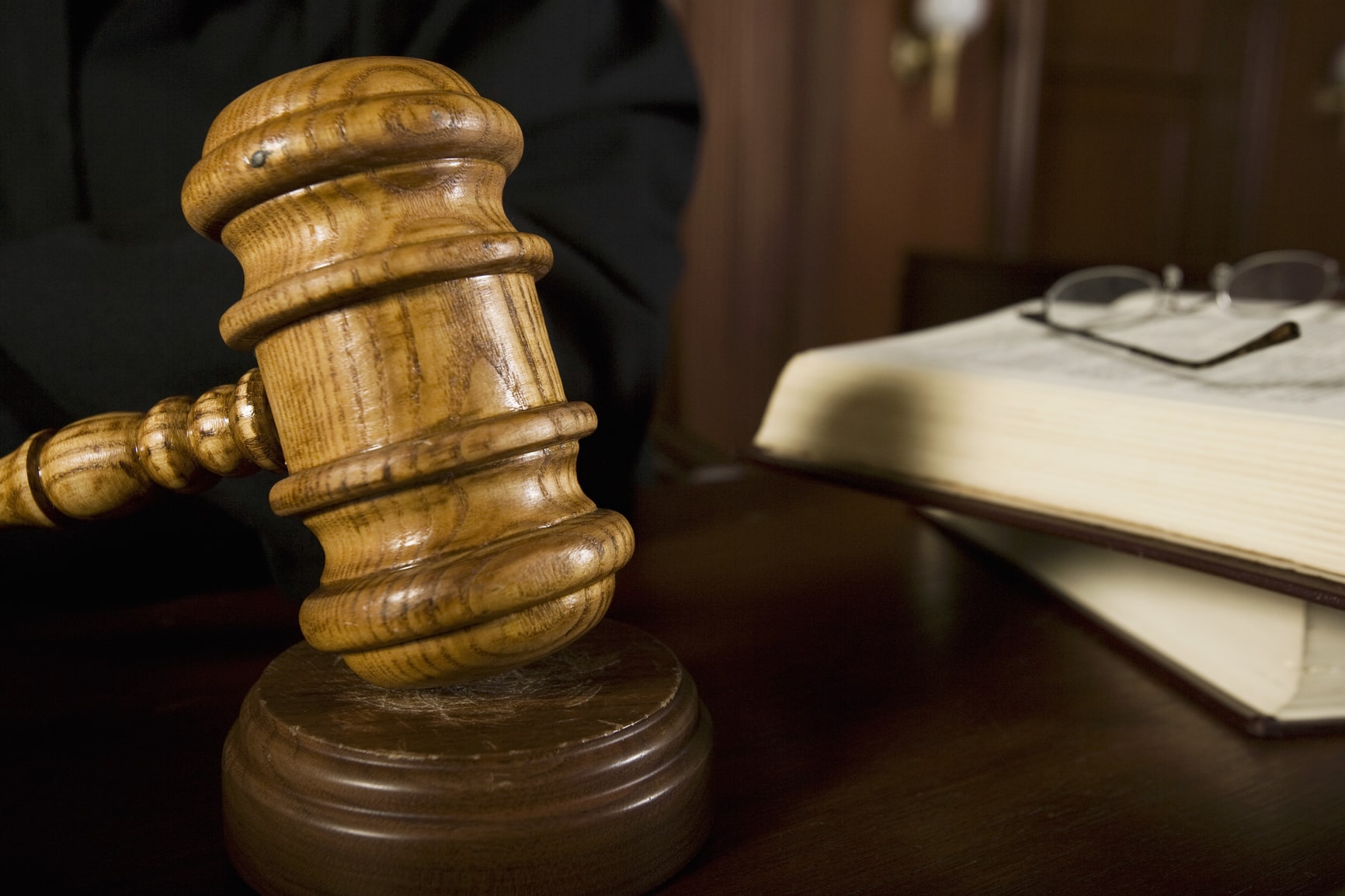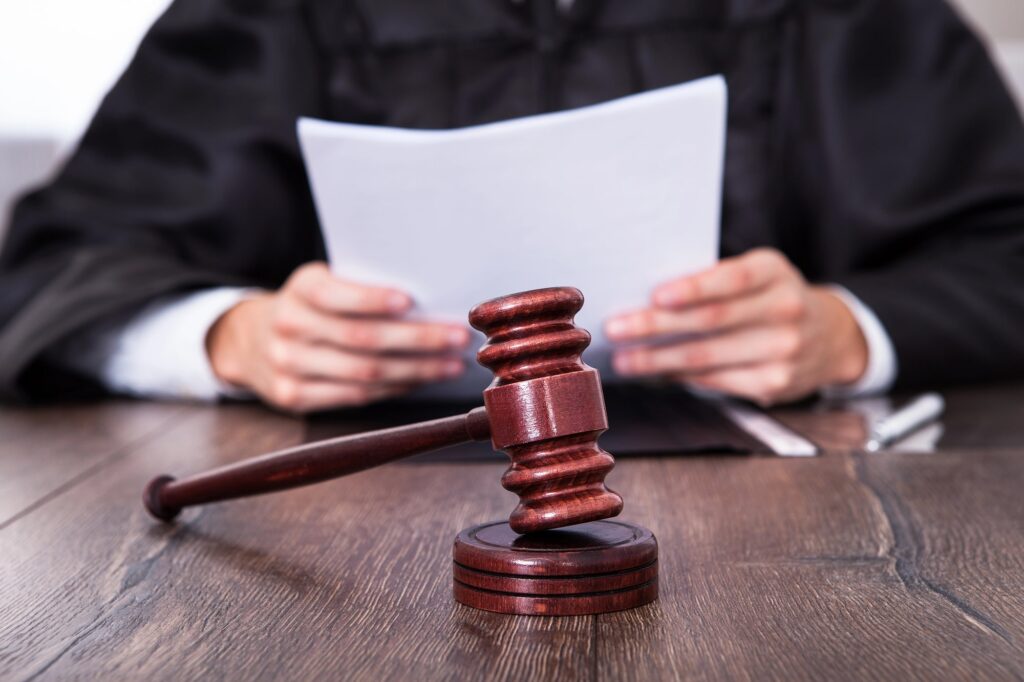In the state of Minnesota, the process of expunging a crime from your record can be complex without support from a lawyer. Those with a criminal record may face ongoing repercussions long after they have served the consequences imposed by the court system. If you are someone with a criminal record, it may cause problems when trying to find housing, a job, or obtaining student loans. Our Minneapolis, MN expungement lawyer understands that you may be worried that your reputation will be tarnished for years. Perhaps you have grown and feel that this offense no longer is a representation of who you are and where you are at in life. If you are wanting to get a crime expunged from your record, contact Derek at Archambault Criminal Defense today for a free consultation appointment.
How Expungement Works
There are a couple different types of expungement. Statutory expungement may seal all the records. By comparison, an inherent authority expungement may eliminate court records only. In most cases, inherent authority won’t seal police, BCA, or prosecutor’s records. Non-enumerated felonies (with the exception of crimes that required registration as a sex offender) are only eligible for inherent authority expungement. As our knowledgeable expungement attorney explains, the expungement statute for Minnesota allows for the following:
- Cases where the juvenile was prosecuted as an adult
- Cases that were resolved in the favor of the petitioner
- First time drug offenses (if dismissed once the diversion program was completed)
- Cases where the petitioner finished a diversion program or were given a stay of adjudication
- Misdemeanors, petty misdemeanors, gross misdemeanors, and some felonies (after a waiting period and as long as the petitioner did not receive new convictions during this time)
- Juvenile records can be expunged if the court decides that the petitioner benefit outweighs public detriment and safety, and the burden on the court in enforcing issuing, and monitoring an expungement order
About Waiting Periods
For statutory expungement, a person has to wait a certain period before they can apply for expungement This waiting period starts after finishing the imposed probation or sentence. To be eligible for statutory expungement, you cannot receive any new convictions during that time. The duration depends on the severity of the offense. Here are examples of offenses and their associated waiting periods:
- Felony: 5 year waiting period
- Gross Misdemeanor: 4 year waiting period
- Misdemeanor: 2 year waiting period
- Diversion or Stay of Adjudication: 1 year waiting period
- Continuance for Dismissal: no waiting period as long as there was no factual admission of guilt
- Acquittal/Dismissal: no waiting period
Archambault Criminal Defense
Derek Archambault at Archambault Criminal Defense knows that having a criminal offense on your record can feel like a hindrance to what you want to accomplish in life. You may feel held back and as if this offense does not reflect who you are as a person. Having criminal charges removed from your record can provide the relief and release from judgment that you are hoping for. Please contact our Minneapolis expungement attorney today so we can get started working on that expungement.
Mistakes To Avoid During The Expungement Process
Clearing a criminal record can create new opportunities in employment, housing, and education. But the process involves more than just filing paperwork—it requires careful attention to deadlines, eligibility, and legal procedures. Many people run into preventable issues that delay or even derail their case. As we guide clients through this process, we’ve seen several common missteps that can easily be avoided with the right approach and preparation. Working with a Minneapolis, MN expungement lawyer can help you avoid many of the common pitfalls outlined below.
Filing Before You’re Eligible
One of the most common mistakes is applying for expungement too soon. Each type of offense comes with a mandatory waiting period that must be met before a court will consider your request. If you file before that period is over, your petition will likely be dismissed, wasting both time and filing fees. It’s important to verify your eligibility based on the date your sentence was completed or your probation ended.
Missing Required Documents
Our criminal record lawyer shares that expungement petitions must be supported by accurate and complete documentation. This often includes court records, proof of sentence completion, and sometimes even affidavits or supporting letters. Missing documents can cause a delay or lead to denial. A Minneapolis expungement lawyer can help review the required paperwork before submission, making sure that everything is in order.
Failing To Notify The Proper Agencies
Once the petition is filed, you’re typically required to serve notice to several parties, including prosecutors and relevant government agencies. Failing to do so may result in an automatic denial. Each county may have its own procedures and requirements for notification, so understanding your local rules is key. Missing this step is one of the easiest ways to have your petition rejected on procedural grounds.
Not Preparing For The Hearing
Some expungement cases involve a court hearing where a judge evaluates your request. Walking in unprepared, without supporting evidence or a clear reason why the expungement is justified, can hurt your chances. Judges often want to see how you’ve rehabilitated and what impact the record is having on your life. A criminal record expungement lawyer can help prepare written statements or bring evidence of employment, education, or community involvement to help strengthen your case.
Applying For The Wrong Type Of Expungement
Expungement options in Minnesota vary, with both full and partial forms available based on the type of charge and how the case was resolved. Filing for the wrong type can result in either a denial or only a partial sealing of your record, which may not meet your goals. Legal guidance from our expungement attorney can help determine what type of petition applies to your situation and how to approach it.
Overlooking Past Violations
Even if your recent case qualifies for expungement, prior violations or criminal history can influence a judge’s decision. It’s important to disclose everything honestly. Courts may view withholding prior offenses as a red flag. A well-prepared petition should explain your entire background and include evidence that supports your growth and rehabilitation.
Treating The Process As A Simple Formality
Some people assume expungement is just a routine step after completing a sentence. That assumption often leads to half-finished applications, skipped hearings, or lack of preparation. The court takes each petition seriously, and so should we. Putting in the effort to present a complete and compelling case can make a meaningful difference in the outcome.
Moving Forward With Legal Guidance
The expungement process involves several steps that can be difficult to manage without a clear understanding of the requirements. Working with a Minneapolis expungement lawyer is one of the most effective ways to avoid common errors and present your strongest case to the court. If you’re considering clearing your record, our lead lawyer at the team at Archambault Criminal Defense has 15 years of experience as a prosecutor and is here to help you move forward with confidence. Contact our firm today for a complimentary consultation.
Why Expungement Is More Than Just Paperwork
For many people, a criminal record continues to cause problems long after the case is over. Even when someone has moved forward, that old charge may still appear in public databases, limit job prospects, or raise red flags during housing applications. In Minneapolis, expungement allows eligible individuals to request that certain records be sealed, giving them the ability to move forward without outdated court history working against them.
We help clients determine whether their case qualifies and how to present it to the court in a way that supports their future. Minnesota law provides pathways for expunging dismissed charges, diversion cases, and specific misdemeanor and felony convictions. The process isn’t automatic, but for many, it offers a second chance.
When handled properly, expungement offers more than just record sealing. It offers dignity, privacy, and a stronger foundation to build a better future.
Public Records And Long-Term Barriers
In many cases, the biggest challenge isn’t what happened in court, it’s how long that information stays visible. Employers, property managers, licensing boards, and even volunteer organizations often run background checks. Records of arrests, charges, or convictions may show up in state databases and court search tools, even when the case resulted in a favorable outcome.
A successful expungement doesn’t erase the past, but it limits public access. That can make a meaningful difference when someone is trying to find stable work, apply for school, or secure housing for their family. In some cases, expunging a record is also a step toward restoring confidence and reducing the impact of a difficult chapter.
We’ve seen how the existence of an old charge can weigh heavily on people’s lives, even when it has no bearing on who they are today. That’s why we believe sealing eligible records is worth pursuing.
What We Focus On In Expungement Petitions
Our work begins with an honest assessment of eligibility. Some cases are eligible for full statutory expungement, meaning records can be sealed across the court system and related agencies. Others qualify only for judicial expungement, which applies to court records alone. We explain these differences and guide each client toward the right strategy.
When preparing a petition, we help collect documentation that shows why the request is justified. That might include letters from employers, proof of community involvement, or evidence of compliance with past court orders. Some expungement petitions are challenged by prosecutors, which means a hearing may be scheduled. We prepare our clients for that step so they can walk into court with clarity and confidence.
As former prosecutors, we understand what courts expect from a strong petition. We’ve represented individuals across Minneapolis who were ready to move forward but needed the legal support to make that possible.
Attorneys like those at Archambault Criminal Defense have seen how sealing a record can change someone’s opportunities and outlook. We take the process seriously and work hard to make every filing count.
Take Control Of Your Next Chapter
If you’re ready to stop being defined by your past charges, working with an expungement lawyer Minneapolis MN can help you take the next step. We’ll guide you through the process and advocate for your future from start to finish.




